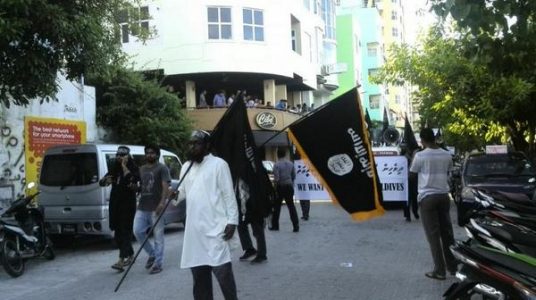
ISIL and Al-Qaeda Linked Groups In Africa Attempting To Control Political Agenda
ISIL and Al-Qaeda linked groups in Africa are embedding themselves in multiple domestic conflicts and attempting to control the political agenda, India said on Thursday, voicing concern that engaging such groups in national reconciliation will only provide legitimacy to terrorism and will be a self-defeating goal.
“We need to recognise the fact that terrorism, like armed conflicts, is expanding in Africa. Al-Qaida and ISIL affiliated terrorist groups in different parts of Africa have gathered significant strength in the recent years, thriving on the illegal mining of artisan gold, rare minerals, gemstones, uranium, coal, timber etc. through illegal trade networks facilitated by transnational criminal networks,” Minister of State for External Affairs V Muraleedharan said.
Addressing the UN Security Council debate on ‘Peace and Security in Africa: Strengthening the fight against the financing of armed groups and terrorists through the illicit trafficking of natural resources’, chaired by Gabon, Muraleedharan said that terrorist groups such as Al-Shabaab have put in place elaborate revenue collection networks, to support their terrorist activities.
“If left unaddressed, terrorism may seriously jeopardize peace prospects in several parts of Africa, which is already ravaged by armed conflicts,” he said.
Muraleedharan underlined that ISIL and Al-Qaeda linked and inspired groups in Africa are embedding themselves in multiple domestic conflicts, attempting to influence and control the political agenda.
“Engaging them in national reconciliation will only provide legitimacy to terrorism as well give them access to necessary financial means and resources. This will be a self-defeating goal. What we need is a zero-tolerance policy towards all forms of terrorism, irrespective of its motivations,” he said.
India stressed that the global fight against terrorism cannot succeed without conscious and coordinated efforts to counter financing of terrorism and nor can the global fight against armed groups.
He told the Council that in recent years, terrorist and armed groups have been making deep in-roads by exploiting security gaps and fragile governance institutions in the continent, particularly in the Horn of Africa, Sahel and East and Central Africa.
“These regions have remained vulnerable to money-laundering and terrorist financing. Terrorist and armed groups are increasingly funding their activities through illegal exploitation of natural resources and trafficking of wildlife, and extortion, etc., amongst other well-known activities,” he said.
Terrorist groups have also found new ways to finance their activities by exploiting the rapid development of information and communication technology as well as other technologies related to financial transactions, encryption, varied modes of transportation and delivery.
Muraleedharan emphasised that preventing these inimical outfits from accessing financial resources is crucial to effectively counter their violent attacks. Noting that while some States lack the legal-operational frameworks and necessary Counter- Financing of Terrorism (CFT) capacities, there are other States that are clearly guilty of aiding and supporting terrorism, and wilfully providing financial assistance and safe havens to terrorists.
“While we must enhance capacities of the former, the international community must collectively call out the latter and hold them accountable to such double speak,” Muraleedharan, a veiled reference to Pakistan.
He said the Financial Action Task Force (FATF) has been promoting effective implementation of legal, regulatory and operational measures for combating money laundering, terrorist financing and other related threats to the integrity of the international financial system.
“It is important that Member States, including African States, bring their anti-money laundering and terror financing monitoring frameworks at par with international standards, including those promoted by FATF. We also believe more cooperation between the FATF and the various UN entities, including the United Nations Office of Counter-Terrorism (UNOCT) will benefit Member States,” he said.
Source: Republicworld





